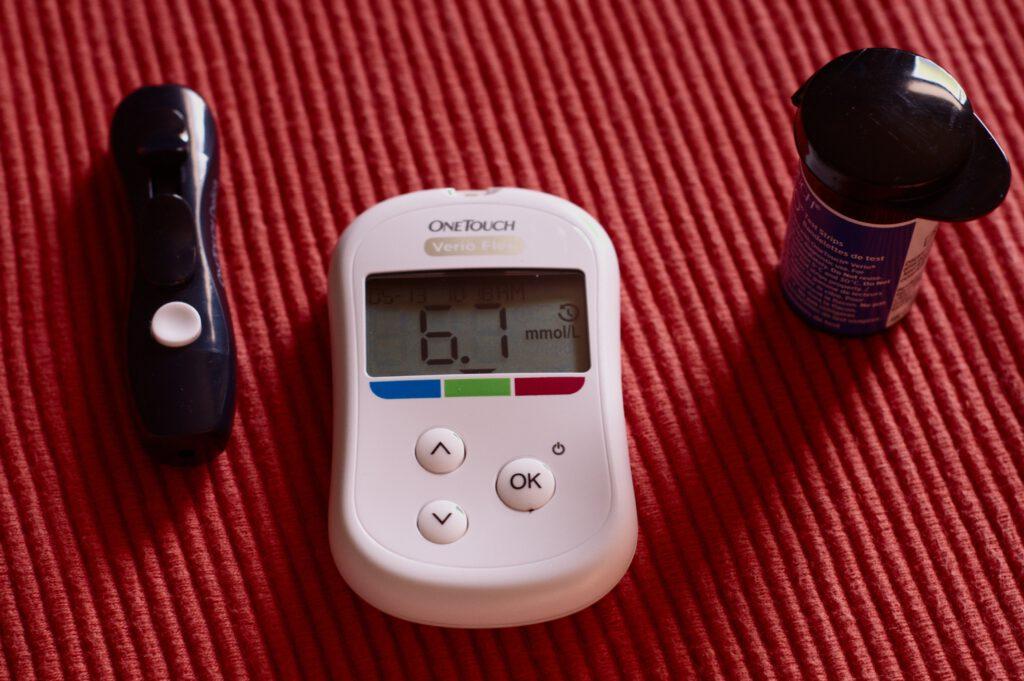Ayurveda, an ancient Indian system of medicine, offers a comprehensive and holistic approach to managing diabetes. This time-honored practice focuses on restoring balance within the body, optimizing digestion and metabolism, and promoting overall well-being. While Ayurveda should complement rather than replace modern medical treatments, its personalized dietary recommendations, herbal remedies, lifestyle adjustments, detoxification practices, and the integrative approach can complement conventional diabetes treatment. By emphasizing individualized care and maintaining balance and overall health, Ayurveda presents a promising path for those seeking a holistic approach to improving their quality of life with Diabetes. In this article, we cover how Ayurveda can help with the management of Type 1 Diabetes
Ayurvedic Support for Type 1 Diabetes
While Ayurveda does not offer a cure for type 1 diabetes, it aims to alleviate symptoms, stabilize blood sugar levels, and improve overall quality of life. Here are some approaches from Ayurveda to support the management of type 1 Diabetes.
Nutrition and Diet (Ahara)
In Ayurveda, type 1 diabetes is often regarded as a disorder predominantly associated with Pitta dosha imbalance. To address this, a Pitta-balancing diet is recommended. This diet includes cooling, bitter, and astringent foods, which help to pacify the excess Pitta in the body.
Find out your Dosha. Find out Ayurveda recipes for your Dosha.
A key aspect of managing type 1 diabetes through diet is the strict avoidance of sugar and refined carbohydrates. These foods can cause rapid spikes in blood sugar levels, which are detrimental to diabetes management. Instead, Ayurvedic dietary practices emphasize the consumption of complex carbohydrates, which break down more slowly and provide a steady release of glucose into the bloodstream. Foods rich in dietary fibre such as legumes, whole grains like quinoa and brown rice, and an abundance of green leafy vegetables are very good for this strategy.
Additionally, eating small, frequent meals throughout the day helps prevent large fluctuations in blood sugar that can occur with larger, less frequent meals. Eating smaller portions more regularly ensures a constant supply of energy, thus supporting better blood sugar control.
To learn about the various alternatives to sugar, check out our complete guide to sugar!
Herbal Remedies (Dravyaguna)
- Bitter Melon (Karela): Known for its blood sugar-lowering properties, it can be taken as a juice or extract.
- Gurmar (Gymnema Sylvestre): Helps in regulating blood sugar levels and reducing sugar cravings.
- Neem: Possesses anti-inflammatory and blood sugar-lowering properties.
Check out more about Ayurveda medicinal herbs.
Oil Massages (Abhyanga)
Regular oil massages, known as Abhyanga in Ayurveda, using special Ayurvedic oils, can significantly improve blood circulation and reduce stress. Moreover, these massages promote relaxation, improve skin health, and support overall well-being. The therapeutic properties of the oils, combined with the gentle, rhythmic motions of the massage, help to balance the body’s doshas, alleviate tension, and enhance physical and mental harmony.
Detoxification Processes (Panchakarma)
Virechana, known as Therapeutic Purgation, helps eliminating excess Pitta from the body and regulating metabolism. On the other hand, Basti, or Medicated Enemas, facilitates detoxification and restores the balance of Doshas within the body.
Yoga and Meditation
Incorporating yoga, Pranayamas and meditation into the daily routine can greatly benefit individuals with type 1 diabetes. Gentle yoga exercises improve insulin sensitivity and stabilize blood sugar levels. While Pranayama, breathing exercises from Yoga, promote relaxation, help regulate glucose levels and can bring several other benefits. Additionally, regular meditation supports stress management and emotional stability, which are crucial for overall well-being and effective diabetes management. By integrating these practices, individuals can achieve better control over their condition and enhance their quality of life.
Lifestyle Changes (Vihara)
In Ayurveda, lifestyle modifications play a crucial role in managing type 1 diabetes. Regular physical activity is essential as it enhances insulin sensitivity and overall health. Engaging in consistent exercise routines helps maintain stable blood sugar levels and supports cardiovascular health, which is particularly important for individuals with diabetes. Incorporating activities like walking, yoga, or any form of exercise that suits one’s physical condition can make a significant difference in diabetes management.
Effective stress management is another vital aspect. Stress can negatively impact blood sugar levels, making it important to incorporate relaxation techniques into daily life. Practices such as meditation, deep breathing exercises, and mindfulness can help reduce stress and promote emotional stability. These techniques not only aid in maintaining better blood sugar control but also improve mental well-being.
Maintaining consistent sleep patterns is also important for supporting hormonal balance. Regular sleep-wake cycles ensure that the body functions optimally and can help in managing diabetes more effectively. Adequate sleep helps regulate various bodily functions, including metabolism and insulin sensitivity, which are critical for individuals with type 1 diabetes.
Regular Monitoring
Regular monitoring of blood sugar levels is essential for diabetic people. Coordinating with medical specialists to ensure that blood sugar levels are consistently checked helps in evaluating the effectiveness and safety of the selected Ayurvedic methods. This ongoing monitoring allows for timely adjustments to the treatment plan, ensuring optimal diabetes management and overall health. Integrate these lifestyle changes and monitoring practices to achieve better control over diabetes and improve quality of life.
Integrating Ayurveda with Conventional Treatment
It is essential for individuals with type 1 diabetes to work closely together with their doctor and their Ayurveda expert. This collaboration ensures that the approaches from Ayurveda are used safely and effectively to complement the type 1 diabetes conventional management plan. An individualized treatment plan, tailored to the patient’s unique needs, is crucial for achieving the best possible outcomes.
By embracing the holistic principles of Ayurveda, individuals with type 1 diabetes can find a supportive pathway towards improved health and well-being.
Understanding Type 1 Diabetes
When our digestive system converts food into glucose, which then enters the bloodstream. Insulin, a hormone produced by the beta cells of the pancreas, transports glucose into the cells of our body, so that it can be used to generate energy. In diabetes, when the body is unable to produce sufficient insulin, glucose accumulates in the blood, leading to high blood sugar levels but cannot enter the cells where it’s needed. This is the essence of diabetes.
In type 1 diabetes, the beta cells in the pancreas are destroyed, often during childhood, due to genetic factors, autoimmunity, or viral infections. This destruction results in the inability to produce insulin. Typically diagnosed in individuals aged 12 to 25 years, type 1 diabetes requires lifelong insulin injections.
More general information about Diabetes available.
Information about Diabetes Typ 2 available.

